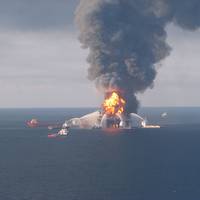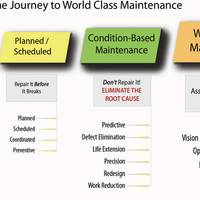What Did Scientists Learn from Deepwater Horizon?

April 20, 2020, marks the tenth anniversary of the Deepwater Horizon rig explosion, the offshore oil industry's biggest environmental disaster.Eleven people died, 17 others were injured, Transocean's drilling rig sank, and an incident caused more than four million barrels of oil to spill into the U.S. Gulf of Mexico from the BP-operated Macondo well which spewed oil into the ocean for 87 days before it was finally capped.In a review paper published in the journal Nature Reviews Earth & Environment…
Proper Engine Maintenance Leads to Significant Cost Savings

Engine Maintenance trumps a tough economy. Bypass oil filtration technology is one way to get there. For the past several years, ferry service and tugboat operators have had one eye on fuel costs and the other on the economy. But worry as they might, there’s not much, if anything, that operators can do to effect change to the economy or to reduce the price of fuel. What they can do, however, is effect change to reduce their company’s operating costs and that’s where proper engine maintenance can make a significant difference.
EnSolve Introduces ShoreClean for Gulf Spill
EnSolve Biosystems, the world leader in maritime bioremediation technology, has introduced a new line of products designed to facilitate cleanup of oil from shorelines, beaches, marshes and open waters. The EnSolve ShoreClean products are designed to release concentrated levels of naturally occurring oil-degrading microbes and nutrients into the waters and beaches along the contaminated shoreline. The microbes break down the particles of oil, converting it to water and trace amounts of carbon dioxide. Dr. Jason Caplan, CEO of EnSolve, said “The ShoreClean products are derived from our proven U.S. The ShoreClean products include booms and bags, which are filled with oil-consuming microbes and slow-release nutrients.
Propulsion: Optimizing Feed Rates For Crosshead Diesels
ExxonMobil introduced a program to optimize cylinder oil feed rates in low-speed (crosshead) diesel engines. The "Feed Rate Optimization" program is designed to help minimize operating expenses by analyzing scrapedown oil as a way to detect changes in the condition of an engine¹s cylinders. The program, which is designed to help customers find a balance between the cost of cylinder oil and the expense of wear-related cylinder maintenance, analyzes scrapedown oil collected from the engine’s scavenge space, a technique pioneered by ExxonMobil. It is designed to provide comprehensive laboratory testing and analysis of the oil sample, and offers onboard testing tools that enable ship’s engineers to quickly detect substantive changes in cylinder condition.
Oil Consumption of Medium Speed Diesel Engines
Reliability and availability are of paramount importance to all users of internal combustion engines. Inherent engine design reliability must be complemented by a suitable periphery and the appropriate choice and treatment of working media such as lubricants and fuel. CIMAC Working Groups have a long tradition of preparing recommendations and guidelines for the internal combustion engine industry and its users. In performing this work, CIMAC takes advantage of its wide and competent international membership; Working Group -"Lubricant" is truly worldwide, with active members from Japan, U.S. and all round Europe/Scandinavia. Specialists from all relevant background - Equipment/Engine Manufacturers…





